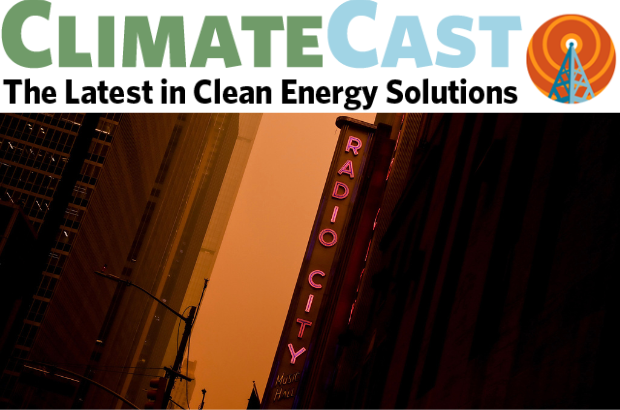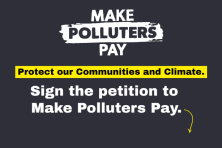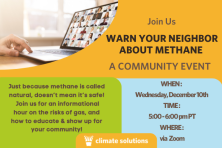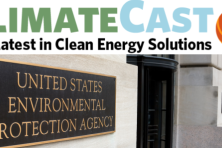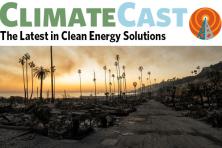Stuck between wildfires, smoke, and heat dome, facing the new climate reality
Two major climate events are happening in North America; the wildfires in Canada, which are themselves a danger with smoke blanketing the northeast coast across the midwestern United States, and a punishing heatwave that has been affecting the majority of the southern and central United States and northern Mexico.
This extreme heat wave is also causing tornadoes on the edge of the heat dome. The temperatures can feel from 115F to 120F. It is so hot in Texas; it is a current contender for the hottest place on earth, next to the Sahara Desert. Due to climate change, these kinds of weather events will continue to occur with increasing severity. Unusually, the nighttime temperatures don't go down enough to offer relief for folks. Due to the temperature onslaught, emergency room visits and 911 calls are booming due to heat-related illnesses. In Mexico, the National Energy Control Center has declared an emergency as it attempts to deal with the strain on the power grid from people attempting to escape the heat. There is mounting pressure to recognize this heatwave as a FEMA-level disaster to make funds available.
Complicating the situation further, the phenomenon known as El Niño, which moves heat from the ocean's depths to the atmosphere, is shaping to be particularly strong this year. This will continue to add to the global temperature, making heat domes an even stronger and regular occurrence.
When it comes to wildfires, they are an unfortunate reality for most of the Western United States and Canada, but the Eastern Canadian fires are recalibrating said reality for the Eastern and Midwestern United States. Air quality from Ohio to New York has been affected, and Detroit, MI, and Washington, DC, registered the worst air quality of any city in the world. The running theme is best captured by Michael Wehner, a senior scientist in the Computational Research Division at the Lawrence Berkeley National Laboratory: "It is important to recognize that dangerous climate change is already upon us. This is not our grandchildren's problem. It is our problem."
Washington Gas Price hikes
Record-high gas prices in Washington state are making regional headlines, a trend AAA of Washington directly attributes to oil pipeline maintenance. The prices drivers pay at the pump result from numerous economic, industrial, and regulatory factors, but the oil industry seeking to maximize its profits is near the top of the list. With these record gas prices, it's an unlikely coincidence that the oil industry makes more profits selling gasoline in Washington state than nearly anywhere else in the United States. That hasn't deterred climate skeptics from speculating that state climate protection policies are to blame for high gas prices.
Perils of climate migration
Last week, a deadly shipwreck in the Mediterranean Sea killed at least 80 people, with hundreds more reported missing. The victims, many fleeing difficult social, political, and economic circumstances and seeking asylum in Europe, add to an ongoing migration crisis that has already claimed the lives of more than 400 migrants and refugees this year.
As rescue workers and government officials were responding to the disaster, regional government officials were preparing to meet in Algiers for the regional international climate conference MEDCOP. The region’s migration crisis loomed large on the conference’s agenda because climate impacts are worsening conditions which are spurring people to leave their homes and communities behind. Noting that “climate change is reshaping migration patterns everywhere,” a new report showed that climate-linked disasters caused more than 300,000 people in the Middle East and North Africa—a 30 percent increase over the previous year. Droughts and flooding produced by extreme weather have plagued both European and African countries in the region. Climate change has also been implicated in increasingly extreme heat waves that brought record-breaking temperatures to parts of Morocco, Algeria, Spain, and Portugal this spring.
This week, the top expert on the climate crisis at the United Nations human rights office urged the international community to recognize that “climate-related disasters including drought and sea level rise have become one of the biggest drivers of displacement” and to “ensure that the rights of people forced to leave their homes for these reasons are protected.
🎧 What we’re listening to
Our new feature What We’re Listening To, highlights a podcast episode or longer-form radio interview that we found compelling.
This week we are listening to a podcast interview of Saul Griffith, How to Decarbonize America– and Create 25 million jobs. The interviewer is Ezra Klein, back when he was an editor-at-large for Vox Media. He is currently a reporter for The New York Times.
Saul Griffith is an engineer that works on decarbonizing the current energy system. He has partnered with economists and fellow scientists to determine the meta-changes required from job creation to financial tools that empower everyday folks and businesses to make the transition. Saul co-founded Rewiring America, “the leading electrification nonprofit focused on electrifying our homes, businesses, and communities. We develop accessible, actionable data and tools. Rewiring America helps Americans save money, tackle nationwide emissions goals, improve health, and build the next generation of the clean energy workforce.” This podcast lays out ambitious climate objectives and is frank about the political challenges, but it was recorded before the passing of the Inflation Reduction Act (IRA). The Rewiring America website includes a wide variety of actionable information on the IRA, down to the county you live in.
